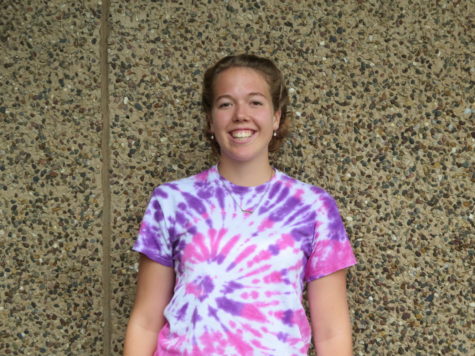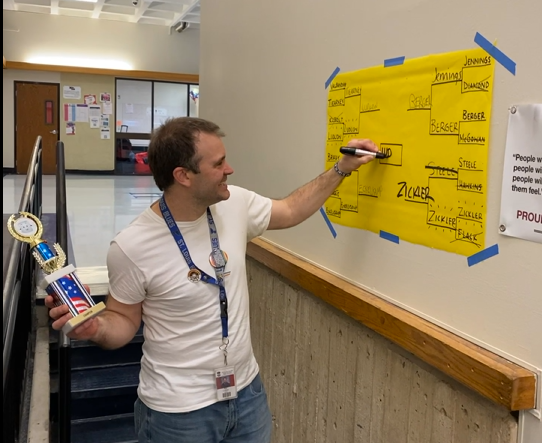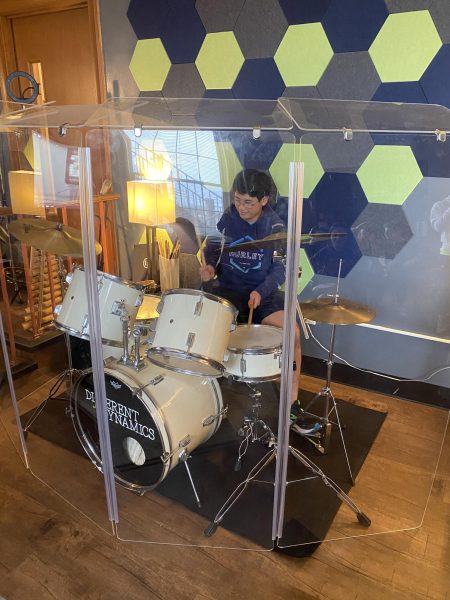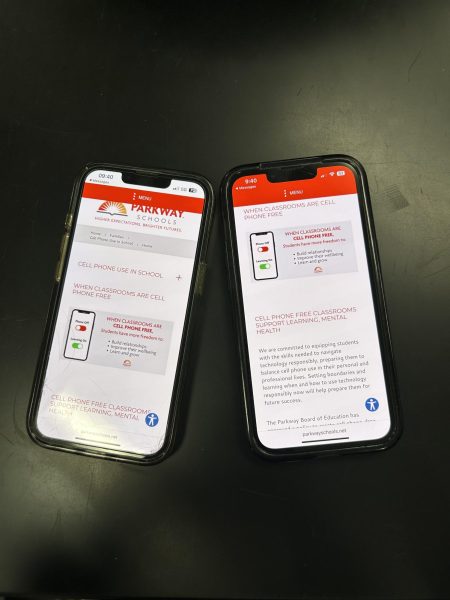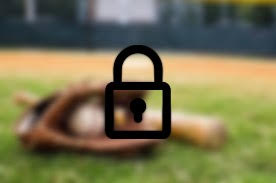Don’t forget to compost!
Beta Chi Pi continues composting effort
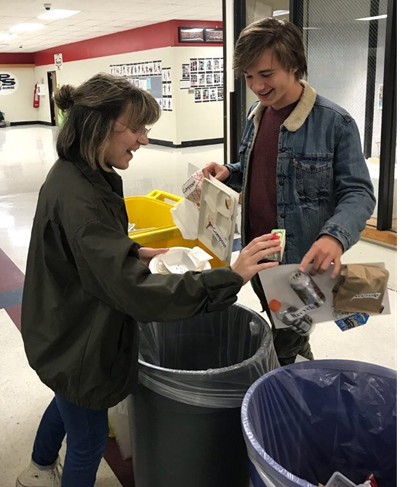
Junior Louis Caerts, a student from Belgium and a Beta Chi Pi member, helps senior Kate Terreri learn what to throw away and what to compost.
Everyone has seen the giant yellow bins placed throughout the Commons–the compost bins. They have periodically come and gone through the cafeteria, and some people might be wondering why. The answer is the majority of people are not composting correctly, according to science teacher Kathy Scheff.
Scheff is the sponsor of the science honor society, Beta Chi Pi, and she has been working to get students involved in composting.
“Other Parkway schools have pushed composting before. We never had them around before a few years ago. Students are not used to composting which makes it hard for people to do or care about,” Scheff said.
Sophomore Alex Ring doesn’t compost.
“I don’t compost. I usually don’t think about it,” Ring said.
While many people do not compost or compost correctly, other students like junior Morgan Glenn compost at school on a regular basis.
“I recycle at home and am use to separating stuff into the different bins. I know that we only have one planet,” Glenn said.
Composting is an effective way to reduce waste and create earth friendly fertilizers. Scheff said that by putting correct waste into the yellow and blue bins students can help less waste go into landfills.
Sustainability and Purchasing Director Erik Lueders said that Parkway School District composts more than 500 tons of material per year that would otherwise go into the landfill. He also said it is very important that compost is sorted correctly.
“St. Louis Composting is the company that accepts our compostable material. This is the same company that ultimately receives residential yard waste, such as raked leaves and grass clippings. They mix food scrap into their yard waste which breaks down over the course of several months. After that time, the material is a nutrient rich product that is then sold for people to then use in their yards and gardens. The material we provide to St. Louis Composting is not sorted, which is why it’s so critical that students and staff don’t put any non-compostable items in the bins,” Lueders said.
The only items that can go into the compost bins are lunch trays, lunch bowls, food scraps, and napkins. Cans, bottles, plastic, and paper bags go into the blue recycle bins, and everything else goes into the gray trash cans.
“People are always wondering how to help and how one person can make a difference. If everyone can make a small change it could result in a big change for our school. We have to have a global perspective and think outside of ourselves,” Scheff said.


